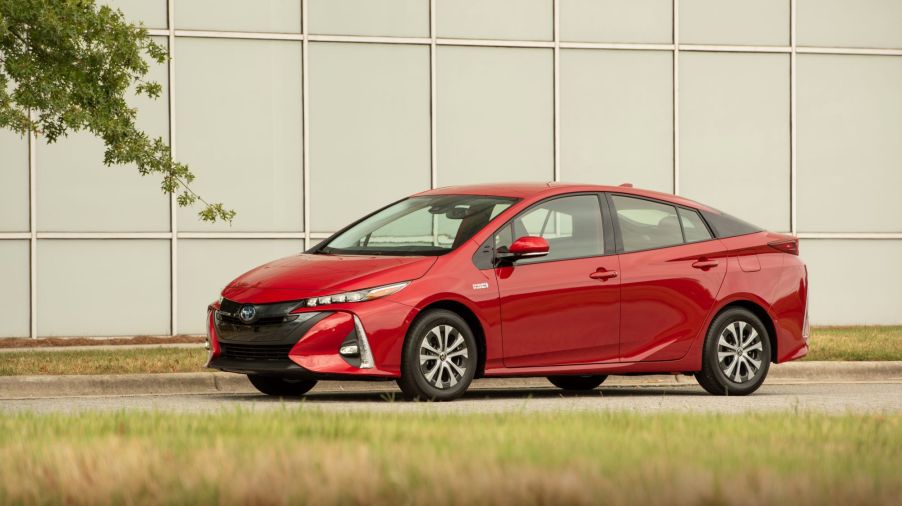
If Toyota Continues to Push Back on EVs, It Could Devastate 1 of the World’s Biggest Car Companies
Toyota has an impressive following among car buyers. The Toyota lineup comprises five of the 10 best-selling cars of 2021 to date. The Toyota RAV4, Camry, Corolla, Highlander, and Tacoma appeared in the top 10, with Toyota comprising an impressive 50% of the list. Additionally, the RAV4 had a 20% increase in sales for the first quarter of 2021. With such a hold on the market, Toyota is poised to move drivers closer to EV dependence. However, the carmaker is reluctant to pursue EVs for now. Let’s take a look at why and how things may change in the future.
Toyota isn’t ready for the EV change

Despite their impressive sales, Toyota is resisting the change to make EVs. The New York Times says, “In statements, Toyota said that it was in no way opposed to electric vehicles. ‘We agree and embrace the fact that all-electric vehicles are the future,’ Eric Booth, a Toyota spokesman, said. But Toyota thinks that ‘too little attention is being paid to what happens between today when 98 percent of the cars and trucks sold are powered at least in part by gasoline, and that fully electrified future.”
The reluctance could affect the carmaker’s bottom line. The Biden administration is making green energy a top priority. The goal is to get U.S. auto sales to be 50% EVs by 2030. They will also change fuel economy standards to nudge automakers in the direction of using EVs. The administration’s steps could affect the bottom line of automakers that don’t fall in line, so to speak.
Toyota is lobbying in Washington
Toyota has met with congressional leaders to lobby against the push for EVs that the Biden administration proposes. Toyota’s covert efforts to slow the EV policies are surprising since it was an early adopter and influencer of EVs with the Prius hybrid model. Thanks to the introduction of the Toyota Prius in 1997, the company helped pave the way for Tesla and other EV manufacturers. Despite their opposition to the momentum of the EV revolution, the automaker has revealed plans to release 70 new electric-based models by 2025, including battery-electric, hydrogen fuel cell, and gas-electric hybrid models.
In other political news involving Toyota, the company came under fire recently after it was revealed that it was the largest corporate donor to Republican lawmakers who objected to the certification of the 2020 presidential election. It also supported the former administration’s policies, such as removing California’s power to set its own emissions standards. However, that rule was reversed under Biden, which allowed California and other states to set their own standards.
The history of the Prius
Toyota‘s hybrid Prius was first introduced in Japan in 1997. It was then introduced worldwide in 2000. Japan and the U.S. are the biggest markets for the Prius. In 2007, the EPA rated the Prius among the cleanest vehicles sold in the U.S. based on smog-forming emissions. The 2018 model year Prius Eco ranked as the second most fuel-efficient gasoline-powered car without plug-in capability available in the U.S., following the Hyundai Ioniq Blue.
The Prius has had a few redesigns over the years. The Prius c was introduced in 2012 and the Prius Prime in 2016. The Prius Prime offers a few more standard and tech features than the Prius base model, and the Prius c was a cheaper alternative.
Overall, Toyota seems to be losing the battle to slow the EV revolution. Countries worldwide are slowly moving to all EVs, with Norway boasting over 50% EV registration recently. If Toyota refuses to fall in line with the current trends, it could soon lose its crown as the top-selling automaker globally.


